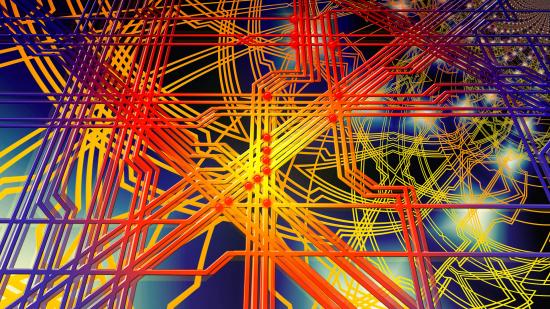Alibaba unveiled on Wednesday its custom neural processing unit, or NPU, which it touts as faster and more efficient than both CPUs and GPUs in artificial intelligence inference tasks. The chip, Hanguang 800, was developed in-house by the e-commerce giant, who intends to put it to good use across its cloud computing empire.
The Hanguang 800 machine learning processor was announced earlier today by CTO Jeff Zhang at the Alibaba Cloud Computer Conference in Yunqi, China. It’s intended to accelerate the e-commerce giant’s far-reaching retail and hosting services, including search and product recommendation workloads. It also says the chip will offer drastic increases in cost/performance over GPU computing. For example, the company claims the chip can cut the time it takes to categorise the one billion product images uploaded to its retailer subsidiary, Taobao, each day from one hour to five minutes.
“The launch of Hanguang 800 is an important step in our pursuit of next-generation technologies,” Alibaba CTO Jeff Zhang says (via South China Morning Post), “boosting computing capabilities that will drive both our current and emerging businesses while improving energy-efficiency.”
Hanguang 800 is the product of Alibaba’s DAMO Academy, its research arm, and T-Head, the company’s semiconductor division.
Currently the company has no plans to launch the Hanguang 800 as a standalone product, but it’s touted performance per watt allegedly that of 10 GPUs could have Nvidia worrying about its GPU-powered datacentre dream – at least in the Chinese market.
But the Chinese market may be looking to ease its dependence on US-based companies, such as Nvidia and Intel, regardless. Following calls from the Chinese government to become self-sufficient in semiconductors as the US-China trade war continues, this custom-built accelerator could also help the Chinese behemoth become less reliant on US tech.
Alibaba also announced its first microprocessor in July, built upon the open-source RISC-V instruction set architecture. Former chairman of Alibaba, Jack Ma, said at the time that the chip was intended to bolster domestic production and minimise foreign chip imports.
Header image by Gerd Altmann from Pixabay
